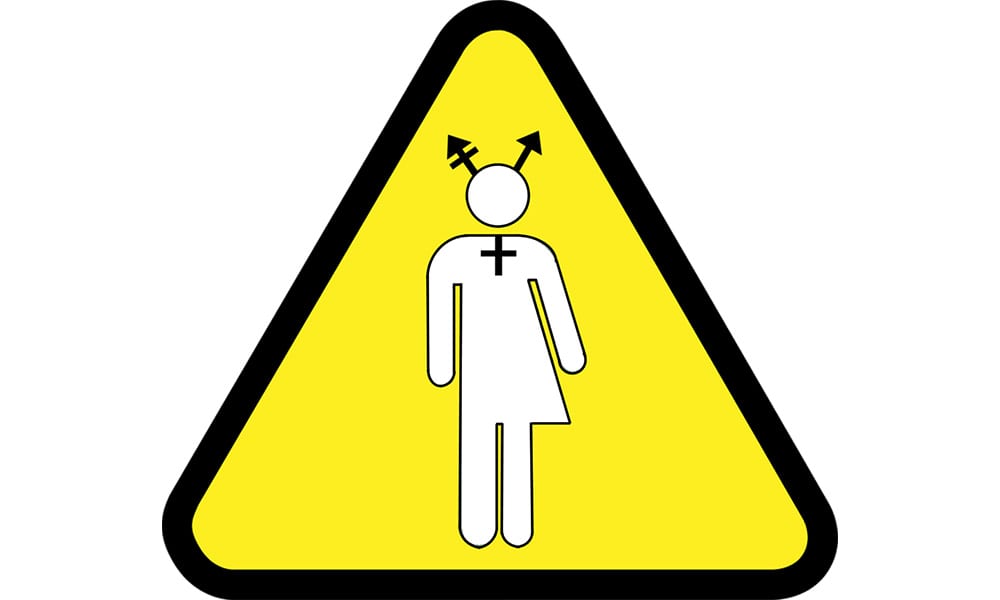The decision by Salvadoran President Nayib Bukele to eliminate “gender ideology” from schoolbooks and guides threatens to increase intolerance and sexual violence in this conservative country, according to women’s rights organizations and the LGBTIQ+ community.
The Ministry of Education announced this week that it removed “all traces” of the gender perspective from school content, in line with similar decisions made in Argentina by far-right President Javier Milei, who banned the use of inclusive language in the national administration.
The decision was announced by the ministry days after Bukele, recently re-elected, participated in a conservative gathering in the United States, and was hailed by conservative groups but criticized by feminist and human rights organizations.
“CONFIRMED: we have removed any use or any trace of gender ideology from public schools,” Education Minister José Mauricio Pineda wrote on social media X.
On the same network, the ministry published: “We clarify that all this content has been expelled from guides, books and other educational materials that were made and disseminated by previous administrations.”
The newspaper La Prensa Gráfica indicated this Friday that the Ministry “threatens” to fire teachers “if ‘gender ideology’ is disseminated.”
When he was a presidential candidate in 2019, Bukele appeared open to discussing the demands of the LGTBIQ+ community and feminist organizations, but in the presidency he made it clear that he would not make reforms on issues that are very sensitive in a very conservative country, which has draconian laws against abortion.
El Salvador banned abortion without exceptions in 1998, which is punishable by two to eight years in prison. But it is often classified as “aggravated homicide,” which carries sentences of 30 to 50 years in prison.
Regional trend
The measure was applauded by the Alianza de Padres de Familia SV, which posted on social media X: “Minister […] very good comment” and lambasted the “harmful indoctrination of gender ideology.” However, feminist organizations warned that the measure will stimulate “intolerance.”
“That decision has not been wise, the right to equality is being violated as discrimination is being made,” Silvia Juárez, from the Organización de Mujeres Salvadoreñas por la Paz, told AFP. She fears that it will generate “more intolerance.”
“What comprehensive sexuality education allows is for other identities to be recognized, which allows there not to be violence that we have suffered when we were school age,” Karla Guevara, from the Alejandría Collective, told AFP. She described the measure as a “violation” of the rights of the LGTBIQ+ community.
For some NGOs, this measure implies a setback, as it eliminates a way to prevent sexual violence. “The reality and dignity of these people does not disappear because words are censored or content is prohibited from school curricula,” said Marcela Martino Aguilar, from the Center for Justice and International Law (CEJIL).
“Those most affected […] are girls at risk of experiencing sexual violence […] and of course LGTBIQ+ people,” Alejandra Coll, from the Center for Reproductive Rights, told AFP.
Conference in the US
The 42-year-old leader debuted in politics in 2012 as mayor of the party of the former leftist guerrillas but was expelled from its ranks in 2017. In the 2019 elections, Bukele ended the left-right two-party system that had prevailed in El Salvador since the end of the civil war in 1992.
His crusade against gangs, launched in March 2022, has won him followers across the continent, as it caused a radical drop in violence. But also critics, since many accused have been denied or delayed the possibility of due process.
Last week, Bukele and Milei participated in the Conservative Political Action Conference (CPAC) in the United States. Former US President Donald Trump, the favorite to win the Republican nomination for the November elections, also attended.






